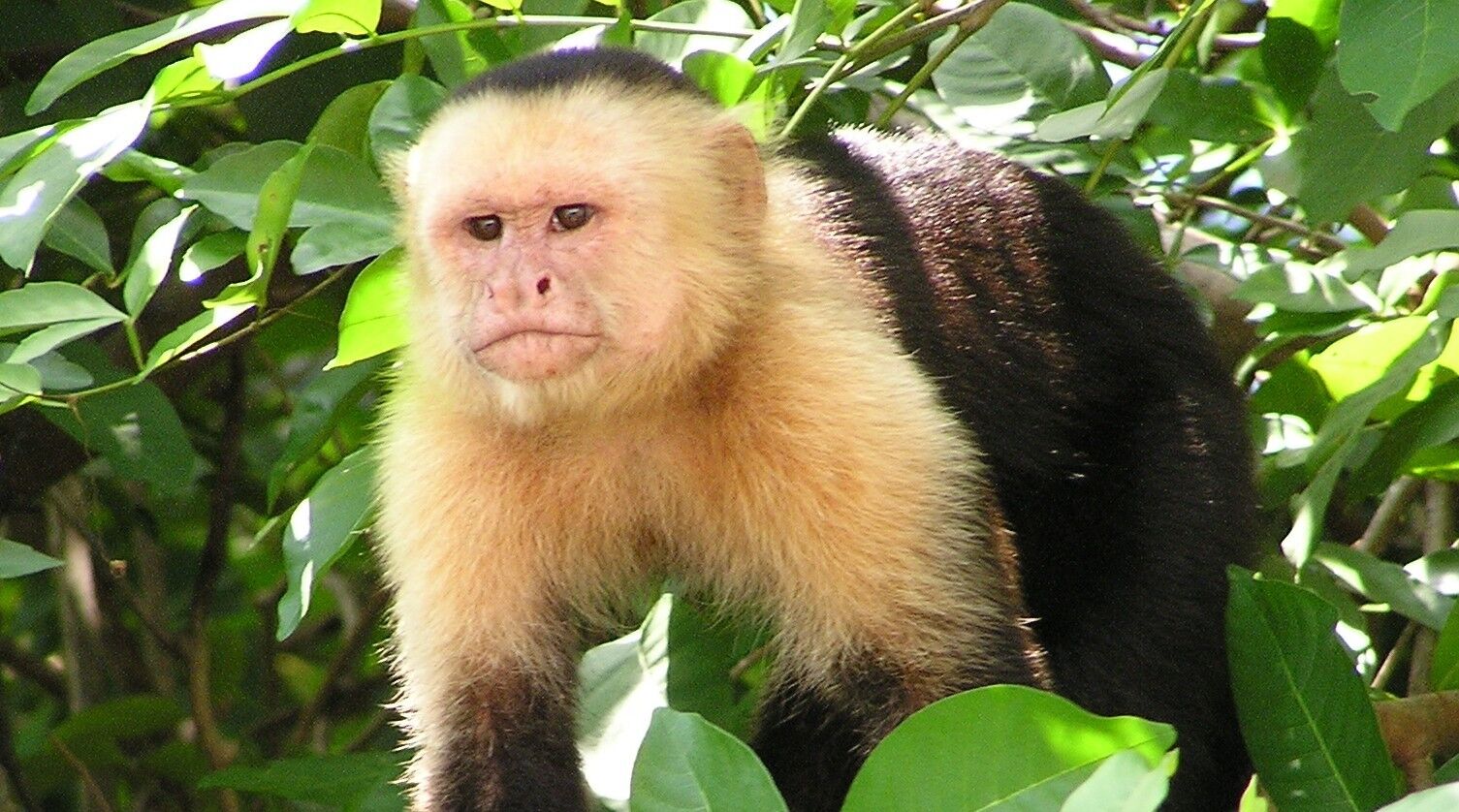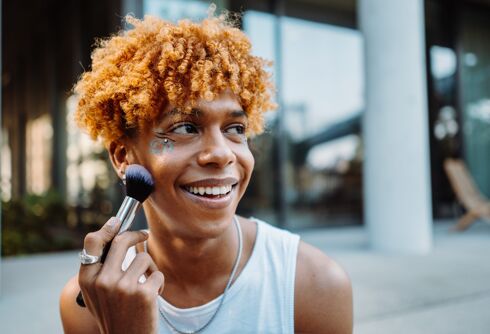Earlier this year, British researchers published a study that found that among a population of wild rhesus macaque monkeys in Puerto Rico, 72 percent of males had sex with other males. Researchers also found that among males who had sex with both other males and females, those that engaged in more same-sex sexual activity tended to have slightly more offspring, likely due to coalition building among males who engage in same-sex activity.
In other words, the research indicated that males who have sex with each other also support each other in conflicts, leading to more opportunities to procreate.
Related:
Wild male macaque monkeys have sex with each other more often than with females
The majority of male macaque monkeys are bisexual.
And scientists have found that same-sex sexual activity isn’t just beneficial to male monkeys, either. On a recent episode of Scientific American’s “Science, Quickly” podcast, primatologist and “science comedian” Natalia Reagan profiled a trio of female capuchin monkeys — Bailey, Haley, and Maci — who are thriving in a “lesbian” love triangle at Animal Tracks Inc., an animal sanctuary outside of Los Angeles.
Never Miss a Beat
Subscribe to our newsletter to stay ahead of the latest LGBTQ+ political news and insights.
“Bailey is a top. Haley is a power bottom. Maci is a flip—she’s a flipper; she can do both!” says volunteer caretaker Michele Kline.
According to Animal Tracks executive director Stacy Gunderson and assistant director Alyson Wright, the trio don’t have sex together. Rather, at four years old and in her sexual prime, Bailey spends time with the two older monkeys individually, and her choice of partner depends on and reinforces social dynamics. When she wants to assert dominance, she mounts Haley. However, she goes to Maci to calm the higher-status monkey down, strengthen their social bond, and improve her own status.
Regan describes Bailey as a “classic switch-hitting, equal-opportunity lover” who has “become a sexual maniac.”
But as Reagan notes, homosexual activity among these animals isn’t just about dominance, as some researchers have asserted. It’s also about giving and receiving pleasure, and as with the rhesus macaque males, forming and maintaining bonds that can be beneficial for highly social animals like primates.
“All primates are highly social,” Regan explains. “Whether it’s grooming, play or sexy-time mounting, this social activity, or affiliative behavior, helps primates develop social bonds that might help them later in life.”
“Sexual activity is just one way to form these bonds. And because monkeys and apes don’t live in a world shackled by repression and self-inflicted gender or sexuality binaries, it’s a bit of a freaky free-for-all.”
All of this contradicts the so-called “Darwinian paradox,” i.e. that same-sex sexual activity persists in various species despite supposedly leading to no reproductive advantage. As the macaque study showed, bonds formed and reinforced via same-sex activity may lead to social advantages that in turn lead to an increased likelihood of procreation.
“Even though homosexual activity has often been ignored, explained away or seen as a deviation from the norm,” Reagan notes, “it’s clear being a little gay nearly every day helps primates get their way—in pleasure and in life.”

















